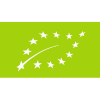Did you know that those typical nighttime calf cramps often have nothing to do with magnesium deficiency? Where magnesium really plays a role is in sports. There, magnesium can, for example, influence your energy metabolism! No wonder so many active people swear by it. But one question remains: Should magnesium be taken before or after working out? What makes the most sense?
Your quick takeaway: Magnesium before or after working out?
For many athletes, regular magnesium intake is part of their sports routine.
Magnesium needs can be covered through a healthy diet and, if necessary, through supplements.
Whether magnesium should be taken before or after training depends on your personal goals and preferences.
Why magnesium in sports at all?
Let’s start with the obvious: why take magnesium in the first place – regardless of whether it’s “before or after working out?
Magnesium (like all nutrients) is important for many processes in the body, such as muscle contraction and bone metabolism. For example, magnesium contributes to maintaining normal bones and teeth and to normal muscle function. That brings us directly to sports!
An insufficient intake, or even deficiency, can affect both you and your training. Depending on severity, this can cause mild to more noticeable symptoms.
What are the benefits of magnesium in sports?
Sufficient magnesium can help support normal muscle function. Handy, right? ;)
Some studies suggest a possible link between magnesium status and leg muscle strength (but that’s no excuse to skip leg day – sorry).
Adequate magnesium contributes to a normal energy metabolism and good ATP availability – the fuel you need for performance.
Who needs magnesium?
Not everyone needs to supplement. Many people already get enough magnesium through a balanced diet. Still, there are three scenarios where supplementation can make sense:
Low intake: Especially in sports where weight is monitored or if your diet is unbalanced, magnesium intake may be insufficient. In these cases, additional supplements are often needed.
Increased needs: Active people often have higher metabolic activity, increasing their need for magnesium and other nutrients.
Higher losses: Do we really lose magnesium through sweat during workouts? Studies are still investigating how relevant losses through sweat or urine are.
If you see yourself in one of these groups, it’s especially important to pay attention to your intake and supplement if necessary. Here’s how:
Magnesium intake (diet & supplements)
How much magnesium do you need daily? Healthy women generally require around 300 mg, while men need 350 mg. Sounds manageable – and it is. With 100 g oats, 30 g pumpkin seeds, 100 g cooked spinach, and a banana, you’re already covered!
Still struggling through diet alone? Supplements may help.
Important: First check your diet – do you eat enough seeds, whole grains, legumes, leafy greens, fish, or fortified mineral water? If not, start there. Otherwise, a supplement may be right for you.
Our tip: Focus on high-quality products and respect the recommended daily dosage. If you’re sensitive, try sustained-release products or spread your intake throughout the day.
But back to the main question: Magnesium before or after working out?
Magnesium before or after working out? The facts
Should you take magnesium before or after training? The truth: it doesn’t make a big difference.
The key is maintaining overall good levels and avoiding deficiency. That’s far more important than the exact timing.
That said, there are small perks: taking magnesium before training may support your energy metabolism, while taking it after training can help your recovery routine. Both approaches can be useful depending on your goals. Why not combine both?
Magnesium before training
- Full magnesium stores are a good base for effective workouts.
- Supports normal muscle function during exercise.
- Keep overall mineral intake in mind if sweating heavily.
Note: Some people may experience digestive discomfort from magnesium – in that case, avoid taking it right before training.
Magnesium after training
- Can be part of your post-workout recovery routine.
- May help replenish possible magnesium losses during training.
- Some studies explore potential links to muscle soreness – more to come.
Important: Taking extra magnesium when your levels are already sufficient won’t add benefits. More isn’t always better.
Conclusion: Magnesium before or after training?
Both timings have benefits, and neither is clearly better. Try for yourself what feels right – before, after, or even both.
Many athletes also rely on other supplements besides magnesium: supplements for muscle growth.
Literature
Bechtold, K. (2024). Beratung zu Magnesium. In: DAS PTA MAGAZIN, 18(7).
DGE (2022). Ausgewählte Fragen und Antworten zu Magnesium.
DGE (o.J.) Referenzwerte. Magnesium.
Kisters, L., Gröber, U. & Kisters, K. (2024). Magnesium im Leistungssport. In: Zeitschrift für Orthomolekulare Medizin, 22(03).
Saur, P. (2004). Magnesium und Sport. In: Deutsche Zeitschrift für Sportmedizin, 55(1).
Vormann, J. (2015). Magnesium im Sport – ein unterschätzter Mineralstoff? In: Zaenmagazin, 7(3).
Do you still have questions? Feel free to write me an email – I look forward to hearing from you! :)
The information in this article does not replace medical or nutritional advice.















 6 Min
6 Min
 Zuletzt aktualisiert am 03.11.2025
Zuletzt aktualisiert am 03.11.2025





